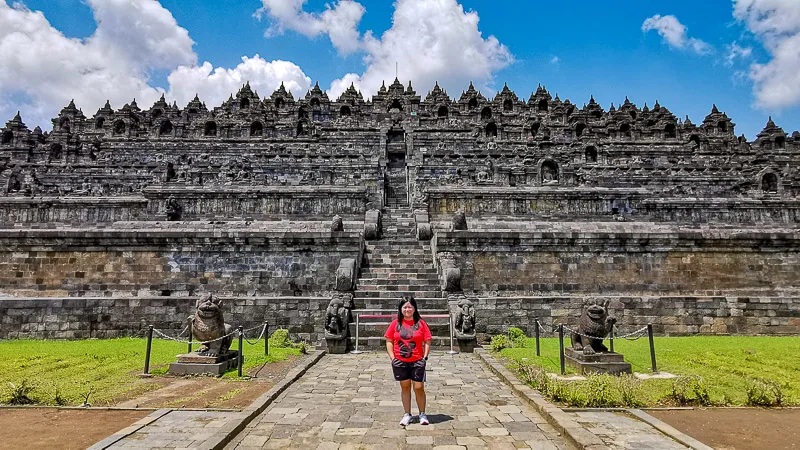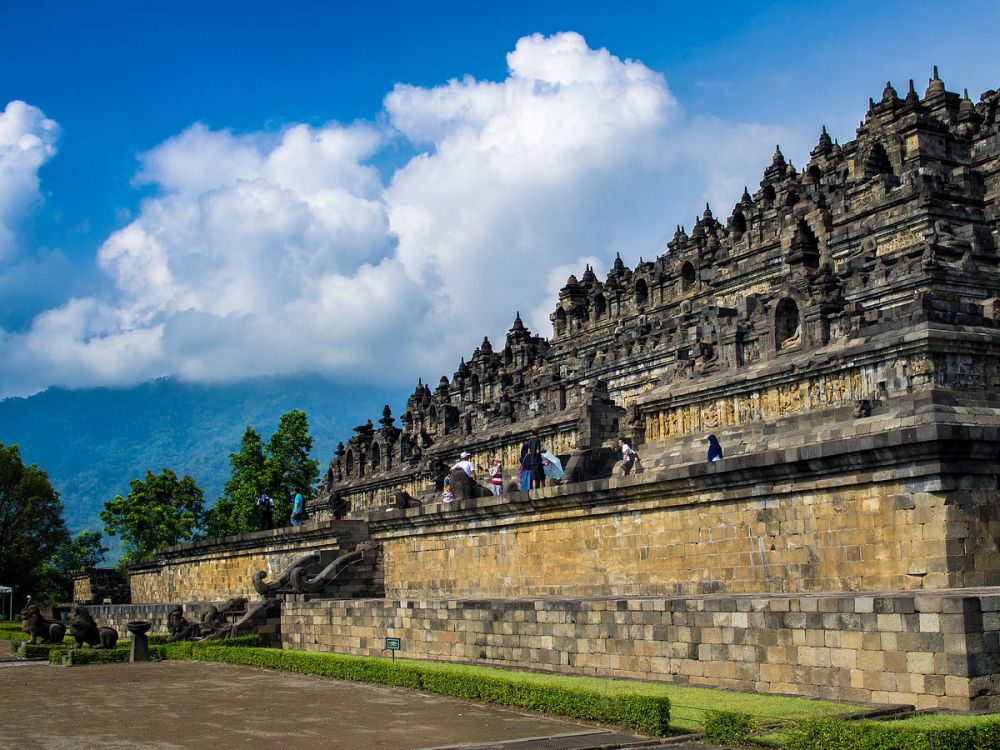Imagine a canvas painted with the softest hues of dawn, where mist gently cradles ancient stones, and the first rays of sun kiss a silhouette etched into history. This is Borobudur, a UNESCO World Heritage site, not merely a temple but a profound spiritual journey and an architectural marvel that has captivated travelers for centuries. While the iconic sunrise over its stupas is undeniably breathtaking, there’s a richer, more intimate tapestry waiting to be discovered just beyond its hallowed grounds: the vibrant world of Borobudur temple local farm visits. This isn’t just a trip; it’s an immersion, a chance to connect with the very heart of Javanese life.
Highlights: Where Ancient Majesty Meets Verdant Serenity
The atmosphere around Borobudur is palpable, a blend of ancient reverence and the gentle hum of rural life. As you approach the temple, the sheer scale and intricate detail of the ninth-century Mahayana Buddhist monument are awe-inspiring. Each of its nine stacked platforms tells a story through thousands of relief panels, leading you upwards to a spiritual pinnacle adorned with bell-shaped stupas. But look beyond the immediate grandeur, and you’ll find yourself enveloped by an emerald sea of rice paddies, coconut groves, and small, welcoming villages.
The natural scenery here is nothing short of therapeutic. Picture lush, terraced fields stretching to the horizon, often backdropped by the majestic silhouettes of distant volcanoes like Merapi and Menoreh. The air is fresh, carrying the earthy scent of the soil and the sweet fragrance of tropical blossoms. It’s a landscape that invites contemplation, a perfect counterpoint to the temple’s monumental presence.
Culturally, Borobudur and its surroundings are a treasure trove. The Javanese people are renowned for their gentle demeanor and warm hospitality. In the villages, life unfolds at a rhythm dictated by nature and tradition. You’ll encounter artisans meticulously crafting pottery, weaving intricate batik, or carving wood with skills passed down through generations. These aren’t just sights; they’re invitations to engage, to learn, and to truly experience the authentic pulse of Indonesia.

Activities: Digging Deeper into Local Life
The real magic happens when you step off the well-trodden tourist path and venture into the local farms. Borobudur temple local farm visits offer a refreshing perspective, allowing you to witness and participate in daily agricultural practices.
- Rice Paddy Immersion: Ever wondered how rice makes it to your plate? Here, you can literally get your feet wet! Join local farmers in the paddies, learn about the traditional methods of planting and harvesting, and feel the cool mud between your toes. It’s an incredibly humbling and hands-on experience that fosters a deep appreciation for sustainable farming.
- Coffee & Salak Plantations: The fertile volcanic soil around Borobudur is perfect for cultivating coffee. Take a tour through a local coffee plantation, learn about the bean-to-cup process, and perhaps even roast and brew your own cup of authentic Javanese coffee. You might also encounter salak (snake fruit) farms, tasting this unique, sweet, and crunchy tropical fruit straight from the tree.
- Traditional Craft Workshops: Many farm visits are combined with opportunities to learn local crafts. Try your hand at making pottery from local clay, a skill deeply rooted in the region. Or perhaps participate in a batik workshop, where you’ll learn the intricate art of wax-resist dyeing, creating your own unique textile souvenir.
- Culinary Adventures: Food is the soul of a culture, and here you can savor it authentically. Many farm tours include a traditional Javanese lunch, often prepared with fresh ingredients harvested right from the farm. Some even offer cooking classes where you can learn to whip up local delicacies like gudeg (jackfruit stew) or nasi goreng.
- Cycling & Village Exploration: Rent a bicycle and pedal through the serene villages surrounding Borobudur. It’s a fantastic way to soak in the rural atmosphere, greet friendly locals, and discover hidden gems like smaller, lesser-known temples or charming local markets.
Travel Tips: Your Guide to a Seamless Journey
Ready to embark on this unforgettable adventure? Here’s what you need to know:
- Best Time to Visit: The dry season, from May to September, offers the most pleasant weather with clear skies, ideal for both temple exploration and outdoor farm activities. Early morning visits (especially for sunrise) are highly recommended for Borobudur to avoid crowds and experience its mystical beauty.
- How to Get There: The closest major airport is Adisutjipto International Airport (JOG) in Yogyakarta. From Yogyakarta, Borobudur is about an hour’s drive. You can hire a private car with a driver, take a local bus (a more budget-friendly option), or arrange a shuttle service through your accommodation or a tour operator. Many local farm tours include pick-up and drop-off services from Borobudur or nearby hotels.
- Entrance Fees: As of recent updates, the Borobudur Temple entrance fee for foreign tourists is around IDR 500,000 (approximately USD 35), but this can fluctuate. It’s always best to check the latest official prices online before your visit. Farm visit prices vary depending on the activities included; many local guides offer package deals.
- Nearby Attractions: Don’t miss the smaller, equally charming temples of Mendut and Pawon, which are intrinsically linked to Borobudur and often visited together. The vibrant city of Yogyakarta itself is a cultural hub, offering historical sites, traditional arts, and fantastic food. Prambanan Temple, another magnificent UNESCO site, is also a worthwhile day trip from Yogyakarta.
- Local Food Specialties & Souvenirs: Beyond the delicious gudeg, try bakpia pathok (sweet mung bean cakes), sate klathak (skewered lamb grilled over charcoal), and the refreshing es dawet (coconut milk dessert). For souvenirs, look for authentic batik clothing, intricate silver jewelry from Kota Gede, hand-carved wooden figures, and locally produced coffee or herbal teas. Purchasing directly from local artisans during farm visits is a wonderful way to support the community.
Conclusion: A Journey for the Soul
Borobudur is more than just a destination; it’s an experience that resonates deeply within. While the monumental temple stands as a testament to human ingenuity and spiritual devotion, it’s the surrounding villages and their thriving farms that truly reveal the living, breathing heart of Java.
Are you seeking a travel experience that goes beyond mere sightseeing? One that offers genuine connections, delicious flavors, and a profound sense of place? Then pack your bags, prepare to be enchanted, and discover the harmonious blend of ancient majesty and authentic rural charm that awaits you on a Borobudur temple local farm visit. This is where history whispers, nature thrives, and the warmth of Javanese hospitality makes you feel right at home. Come, explore, and let Borobudur touch your soul in ways you never imagined.


